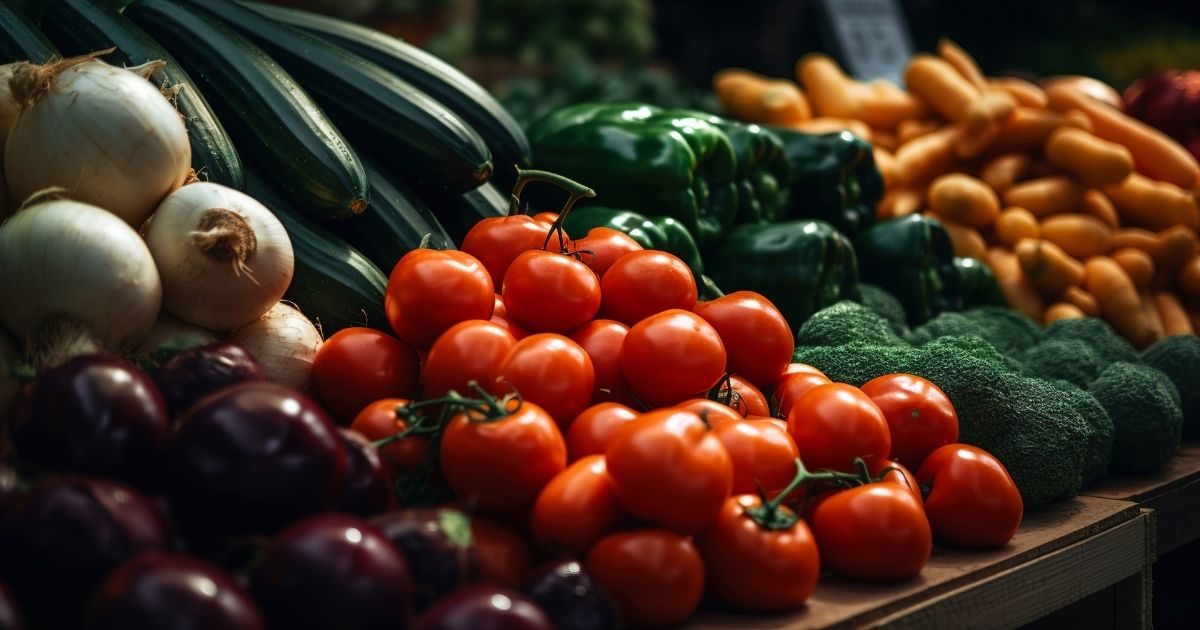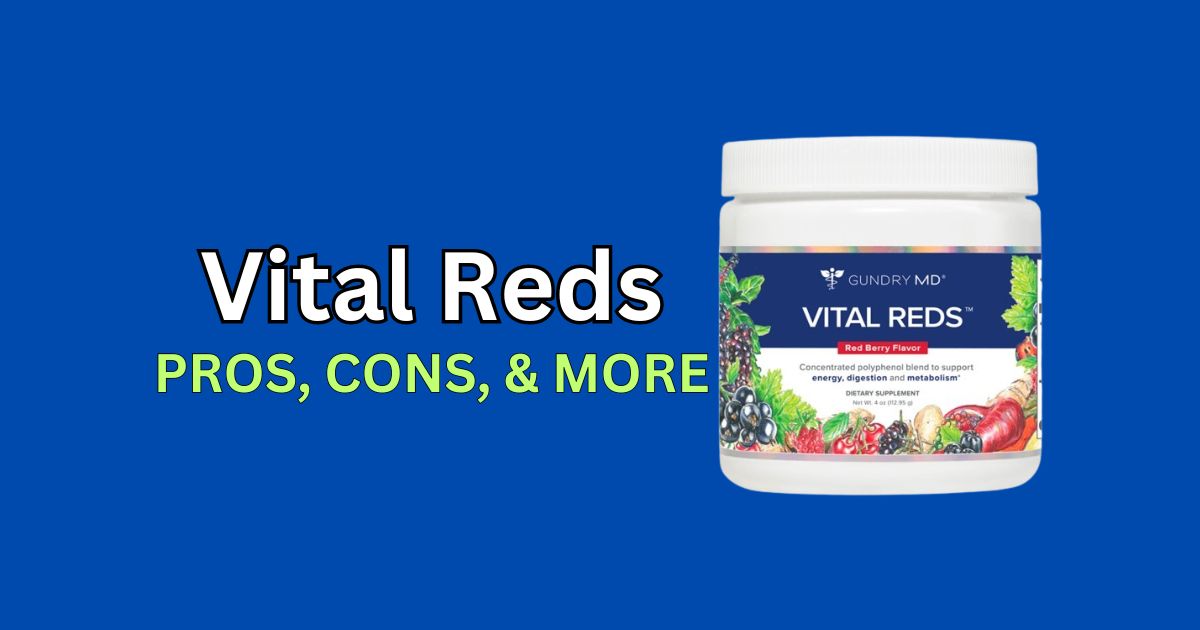Nightshade Vegetables – A Comprehensive Overview
October 17, 2023

In this article, we’re taking a closer look at nightshade vegetables and their potential impacts on health. We’ll dispel any misconceptions surrounding these foods as well provide valuable insights into the nutritional benefits that they can offer. With accurate information, you will be able to make informed choices when deciding what to include in your diet – so let’s explore if night shades are indeed a healthy choice for all of us!
Key Takeaways
- Nightshade foods contain essential vitamins, minerals and antioxidants that provide health benefits.
- Research has debunked myths about their ability to cause inflammation or joint pain, showing instead they possess anti-inflammatory properties.
- An elimination diet can be used to test your tolerance of nightshades while mindful dietary choices and alternative recipes can help reach goals.
Understanding Nightshade Vegetables
Nightshade vegetables, belonging to the plant family Solanaceae (known as nightshades), are a large and varied group of plants. Where exactly their name comes from is uncertain but some suspect that because many members have dark and mysterious histories, they were dubbed with this title. Bell peppers for instance may be labeled under fruit technically speaking We usually just call them “vegetables.”
These nightshade vegetable species contain different types of alkaloids such as solanine, nicotine or capsaicin. Yet in most cases these compounds found inside the food items come at levels too low to cause any harm. It’s best not to consume green potatoes or tomatoes which tend to possess higher concentrations so be sure you don’t buy those!
Nutritional Value of Nightshade Vegetables
Nightshade vegetables have a wide range of benefits, both nutritionally and medicinally. If you eat nightshade vegetables as part of a balanced diet can provide an array of vitamins, minerals, antioxidants and fiber that are essential for overall well-being. Nightshades contain alkaloids with anti inflammatory properties which offer pain relief To assisting the immune system by providing antioxidant activity.
Consuming nightshade food products is not only beneficial healthwise but also offers delicious meals! To Explore all the advantages linked to these plants it’s worthwhile taking time out to look into their nutritional value such as eggplants, tomatoes or bell peppers. Something which we’ll be examining more closely in this section .
Including plenty of nutritious elements from the world’s selection of nightshade foods should give you peace knowing they’re benefiting your general wellness and keeping dangerous diseases at bay while tantalizing taste buds throughout each delightful mealtime experience!
Eggplants

Eggplants offer not only deliciousness, but also beneficial nutrients which promote proper digestion and cardiovascular wellness. Packed with potassium, Vitamin B and K , eggplant fiber helps aid in the digestive process as well as reduce chances of heart problems. Although it contains solanine at a rate of 11 milligrams, these levels are typically deemed safe for ingestion .
Tomatoes

Tomatoes are a widely used ingredient in many dishes, and they also offer several nutritious benefits. They contain potassium, iron, zinc and lycopene as well as folate – an essential component that helps with tissue growth by serving as a cofactor for DNA production and metabolism of amino acids. Tomatine contained within tomatoes is thought to have cancer-fighting properties. Overall, this vegetable’s nutrient composition can help reduce inflammation while improving cell function at the same time.
Bell Peppers

Bell peppers are packed with beneficial vitamins – C, A and B6, that offer a variety of positive health benefits. Vitamin C assists in the absorption of iron as well as wound healing. Meanwhile, vitamin A helps to keep vision healthy along with aiding immune system functioning and promoting skin health. B6 produces hemoglobin for energy production alongside melatonin which regulates our circadian rhythm helping us get better sleep at night. When incorporated into meals correctly these colorful vegetables can be an excellent addition when it comes to staying nourished while maintaining overall wellbeing..
Debunking Common Nightshade Myths
Nightshade vegetables have been falsely claimed to cause inflammation and joint pain which are other arthritis symptoms. Research has shown this is untrue as nightshades do not aggravate rheumatoid arthritis or any related conditions. In fact, studies suggest the consumption of these veggies may provide anti-inflammatory effects that can reduce risks for prostate cancer and heart disease. It’s essential to identify real facts from false information when making decisions so it’s important we use data-driven choices according to our personal experience too.
Nightshade Allergies and Sensitivities
Nightshade allergies and sensitivities, while rare, do exist. Signs that one may have a sensitivity to nightshades can be indicated by hives, rashes on the skin that cause itchiness or increased mucus production. Nausea and vomiting are also potential symptoms along with achy muscles/joints as well as inflammation. If you think you might suffer from this allergy it is recommended to see medical advice for Confirmation through tests like elimination diets and blood work To traditional skin prick testing methods.
The Role of Nightshades in Autoimmune Diseases and Inflammatory Bowel Disease
In terms of nightshades and how they might affect individuals with autoimmune diseases or IBD, evidence is currently limited. IBD consists of an array of autoimmune illnesses that involve inflammation in the gut causing leaky gut syndrome– a condition where the lining in the intestines becomes damaged due to increased intestinal permeability.
Though more research needs to be done on this topic, if you are worried about eating nightshades regarding these conditions it would be best practice to consult a healthcare provider for guidance.
The Elimination Diet: Testing Your Tolerance to Nightshades
By using an elimination diet, you can discover your own personal sensitivity to nightshades. Begin by omitting them from your daily consumption and then gradually reintroducing each one at a time while carefully noting any reactions or responses that may occur. This method allows for more informed dietary decisions based on individual sensitivities.
How to Conduct an Elimination Diet
When following an elimination diet, it is important to remove nightshade fruits and vegetables from your meals. Pay attention for any symptoms or reactions such as nausea, abdominal pain, hives, flatulence etc., over a period of 3-7 days before reintroducing the eliminated foods one at a time. It may be beneficial to keep a food diary and discuss with healthcare professionals while undertaking this type of eating pattern in order to ensure that you are receiving adequate nutrition along with monitoring signs like difficulty breathing or dizziness during the process.
Tips for Success
Maintaining commitment and discipline throughout an elimination diet can be difficult. To help manage cravings, it’s important to select nutritious foods that will provide adequate calorie intake so one doesn’t feel deprived. Being too restrictive with food choices could lead to more intense urges for things you shouldn’t have during the diet. Thus, avoiding extreme hunger is essential as well since it exacerbates these types of desires.
When struggling with a craving or seeking a snack option while on your elimination plan – determine whether you’re actually physically hungry and if not consider other triggers driving your need for something specifically off-limits from the meal strategy laid out in this kind of dietary intervention. Having enough nutrient dense snacks when needed may be just what is required at times like these allowing success in completing such diets successfully without feeling like there are restrictions which cause deprivation or lack thereof enjoyment!
Nightshade-Free Alternatives and Recipes
People who need to evade nightshades due to sensitivities or allergies must know which edible ones they should keep away from. Fortunately, there are numerous substitutes that can be just as delicious. Popular vegetables include potatoes, sweet potatoes, squash, cauliflower and mushrooms. All of these alternatives make it easy for people with dietary restrictions to enjoy a wide variety of meals without using any sort of nightshade vegatable. Coming up with inventive ideas when cooking utilizing substitutions gives those avoiding nightshades the opportunity savor an assortment of dishes still containing healthy ingredients other than the typicalnight shade foods.
Precautions and Considerations
When it comes to including nightshade vegetables in one’s diet, taking into account any potential allergies, sensitivities and personal choices is essential. Research shows that consuming these types of veggies over a prolonged period does not Result in negative health outcomes for most people. They might worsen some medical conditions such as chronic inflammation arthritis or diabetes.
If someone has reservations about eating nightshades or thinks there could be an allergy/intolerance present then consulting with a healthcare provider should take priority so knowledgeable decisions are made regarding their dietary habits relying on research findings alongside individual experience and expert advice.
Summary
When adding nightshade vegetables to your diet, it is essential to remain knowledgeable and well-informed about their potential benefits as well as individual sensitivities or allergies. Despite the common myths surrounding them, consuming these kinds of veggies can offer many positive effects for overall health, which can be established by consulting a healthcare professional that suits you best. In order to ensure personal wellbeing while enjoying an array of nutrients from different foods sources at once, weigh up all options before making any decisions.
Frequently Asked Questions
Are nightshade vegetables safe to eat?
If you have no sensitivities or medical conditions such as inflammatory bowel disease and arthritis, then you can safely eat nightshades. There’s really nothing to worry about if there are no symptoms related with eating these types of veggies so feel free to add them in your diet.
What are the symptoms of nightshade intolerance?
Signs and symptoms of a nightshade intolerance can include skin hives, rashes, itching feeling, nausea, vomiting as well as joint pain or stiffness. It is important to note that allergies associated with this family of plants are rare. Thus it needs differentiation from the above mentioned intolerances.
Is Sweet Potato a nightshade?
Sweet potatoes, although not part of the Solanaceae family like nightshades are thought to be related due their similar characteristics. Sweet potatoes actually belong to two distinct families: Convolvulacea (Morning glory) and Dioscoreaceae.
Why do people avoid nightshades?
For potential safety reasons, eating vegetables that are part of the nightshade family has often been avoided as they could contain alkaloids like solanine which can be hazardous if consumed in large amounts. Many also report experiencing greater levels of inflammation and discomfort from arthritic pain after consuming these foods.
Are nightshades harmful to everyone?
Nightshades are Considered to be both healthy and safe for the majority of people, although there can be some sensitivity or allergic reactions experienced by individuals.




